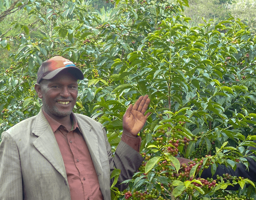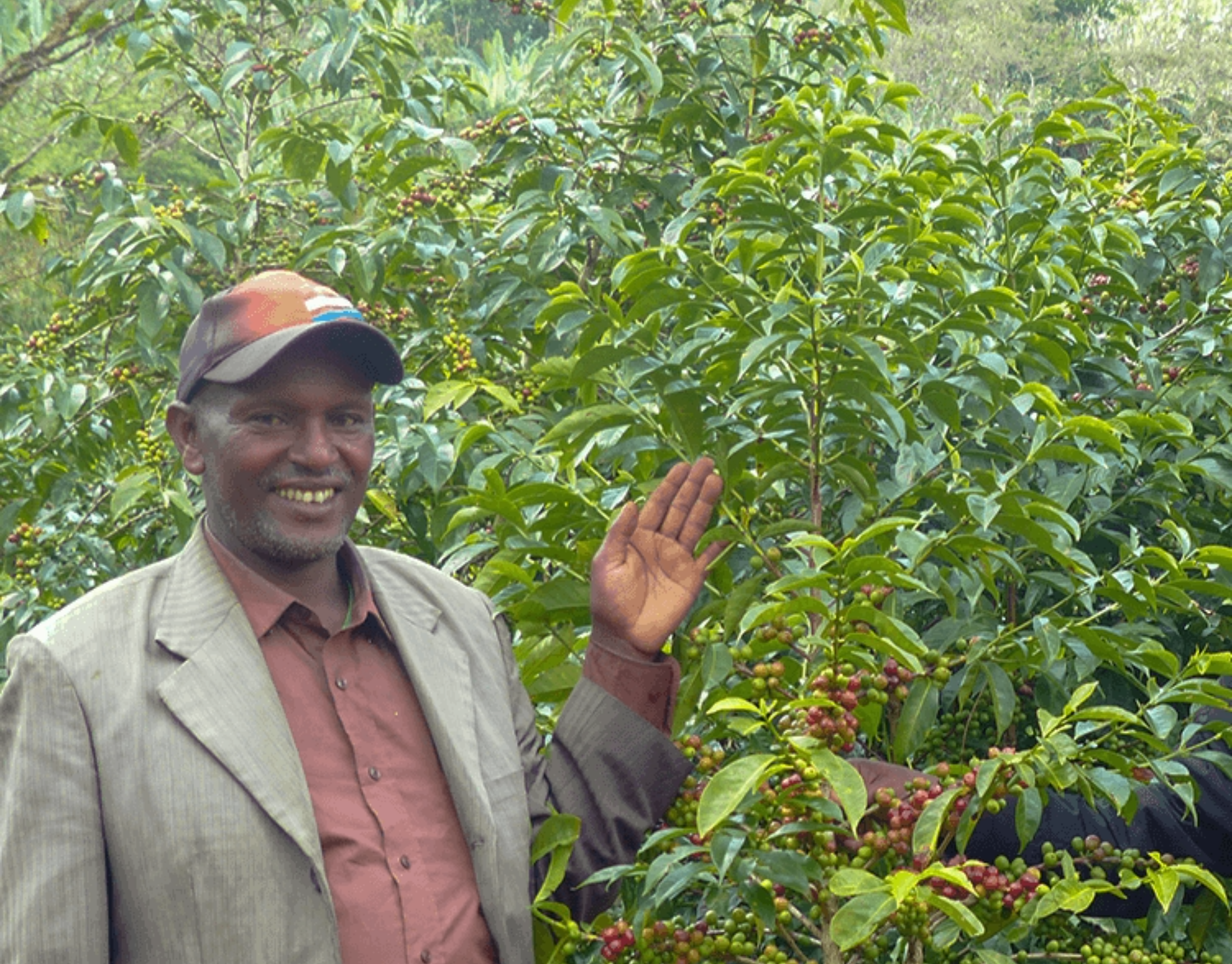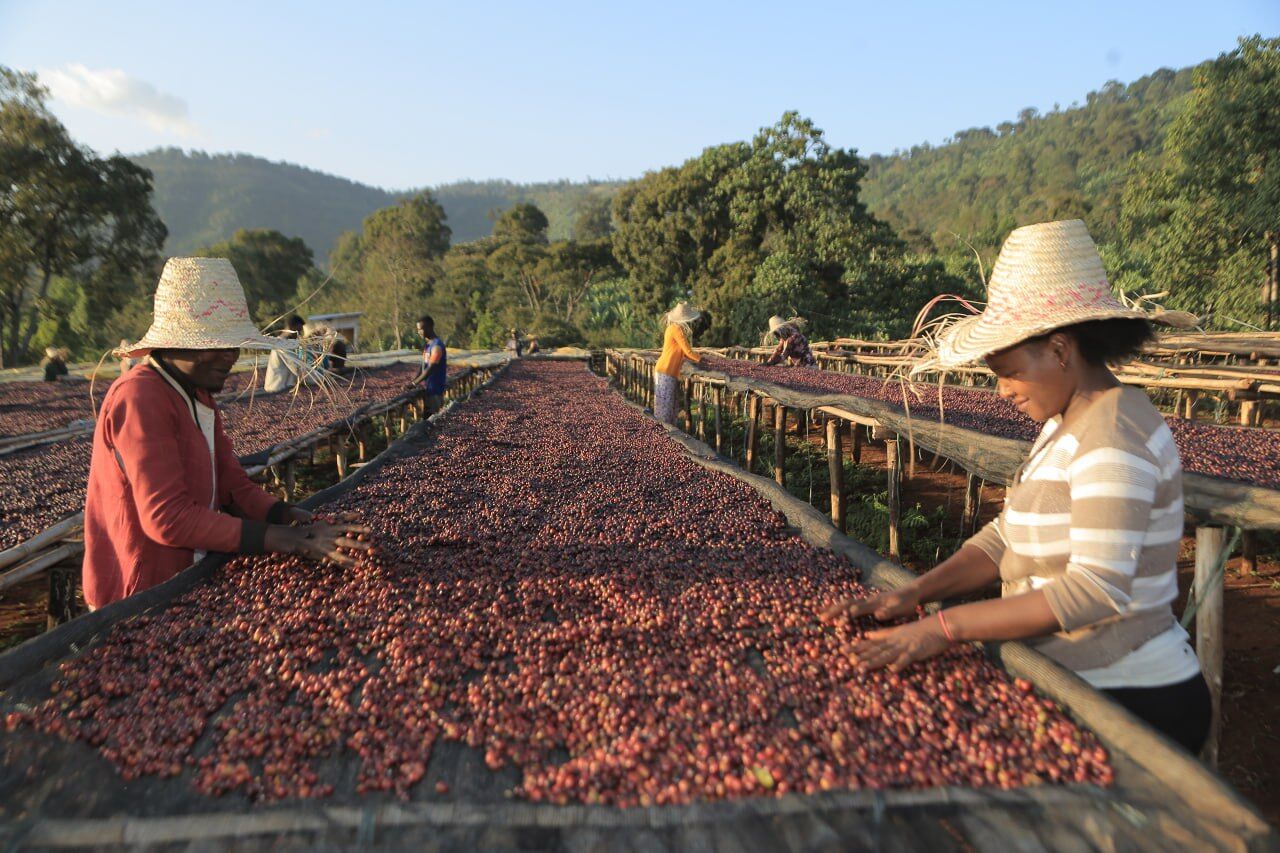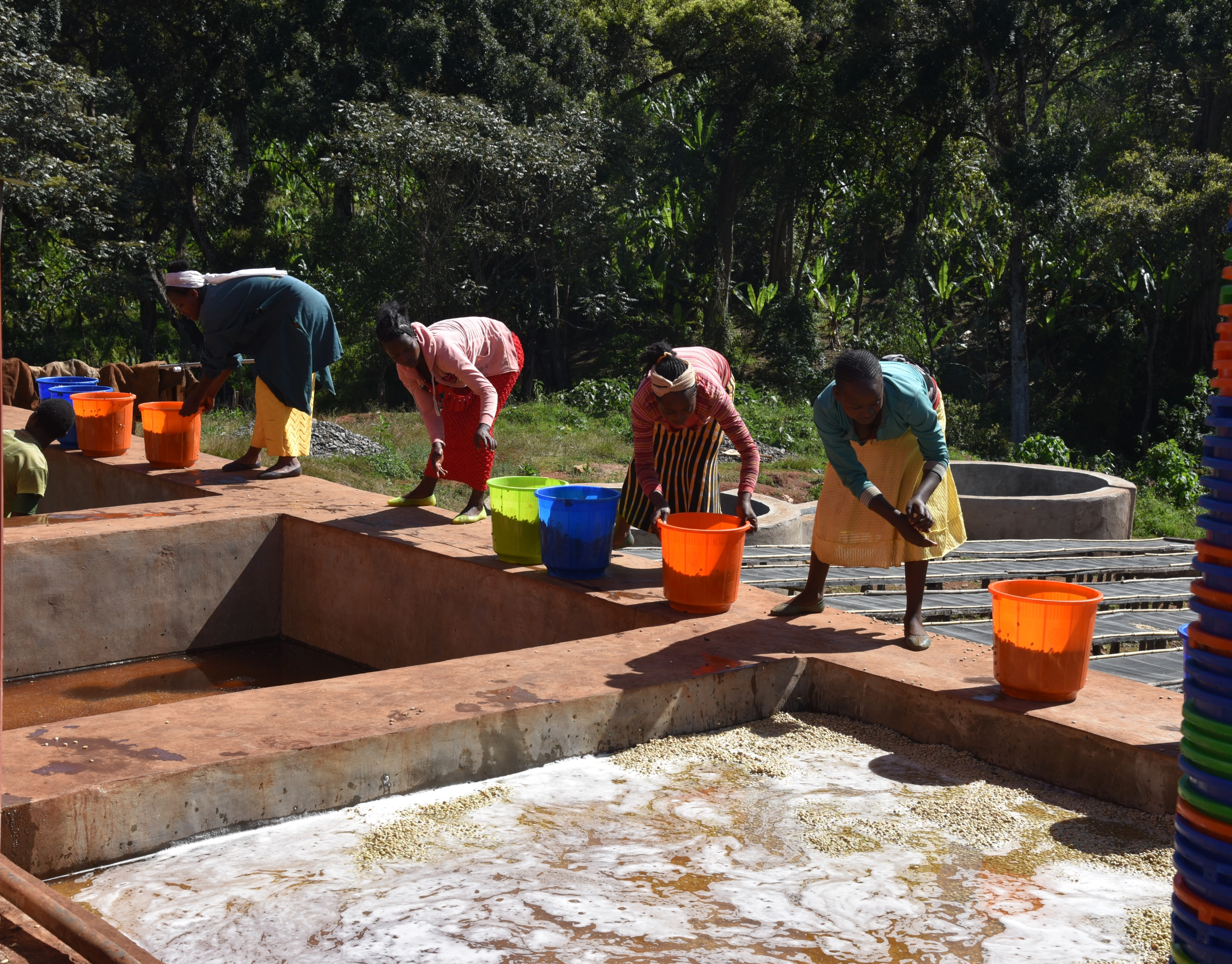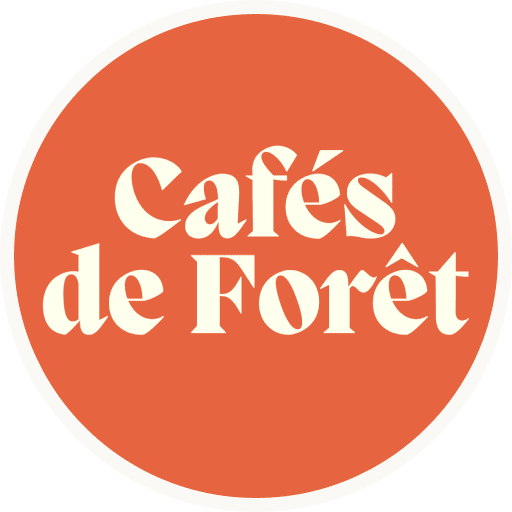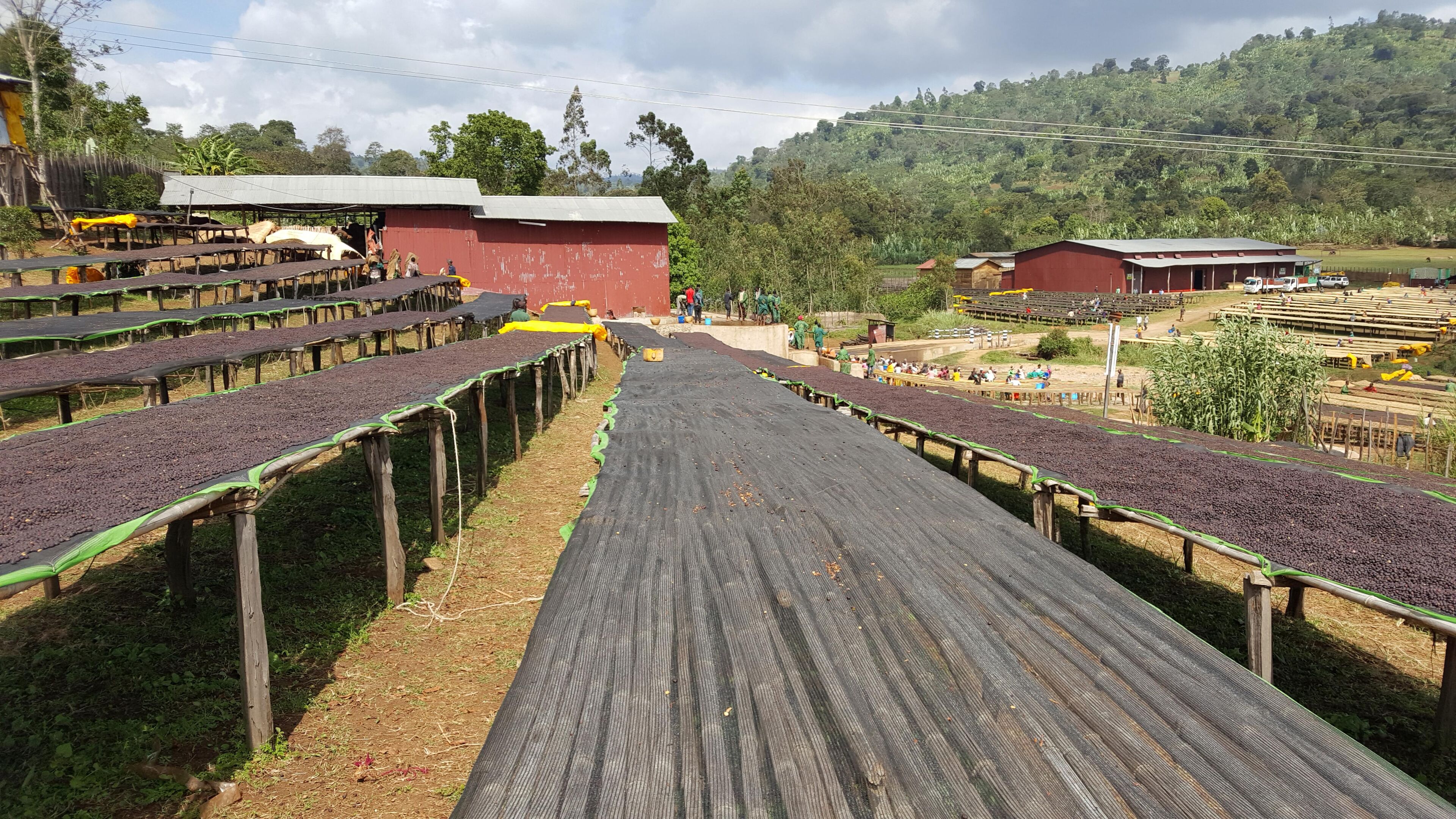Aman Adinew founded Metad in 2010, and coffee production began three years later. His brother, Tariku Adinew, joined the company shortly afterward.
Metad processes coffee at ten sites located in the Hambella and Gedeb woredas. They work with 15,000 outgrowers spread across ten kebeles. In Tirtira Goyo kebele (Hambella woreda) alone, 150 outgrowers deliver coffee cherries to Metad’s washing station in Alaka kebele.
Farmers in Tirtira Goyo use two agroforestry models: garden coffee and semi-forest coffee. The farms are organic and practice polyculture, incorporating shade trees. The local coffee heirloom varieties in Guji include Bedessa, Kudhumi, Miqe, Sawa, and Walichu. JARC-released varieties such as 74110 and 74112 are also found. Many farmers in Goyo originate from the Gedeo zone, where garden coffee is the dominant model and enset is commonly intercropped with coffee.
The cherries are pulped using a Penagos eco-pulper the morning the day after harvest. This machine removes the mucilage and significantly reduces the amount of water needed to wash the parchment. After pulping, the parchment coffee is soaked for one day before being spread out on drying tables.
Drying takes place on traditional African raised beds, and thanks to the high altitude (over 2,000 meters) and the favorable orientation of the wet mill, optimal drying conditions are achieved. The drying process typically lasts between ten and fifteen days.
Belco and Metad have been working together since 2018, united by a shared vision of quality, environmental responsibility, and respect for the people involved throughout the coffee value chain.
Here are a few words from Tariku Adinew:
"METAD wants to make our community happier and healthier, and we pride ourselves on implementing ethically and socially responsible practices across our company. A portion of all profits are reinvested back into the community, going towards the building of clinics, roads and digging wells for safe drinking water, among other initiatives. We have adopted a local elementary school, providing over 850 students with much needed supplies and financial support, we also provide University scholarships to 105 disadvantaged students from our area, and we’ve partnered with Grounds-for-Health, a US-based NGO working with coffee farming communities to eradicate cervical cancer in women. Over 70% of METAD’s current farm workforce are women."

